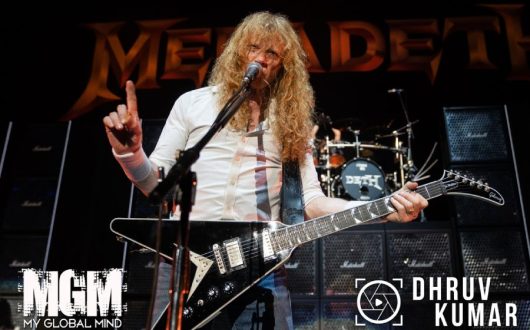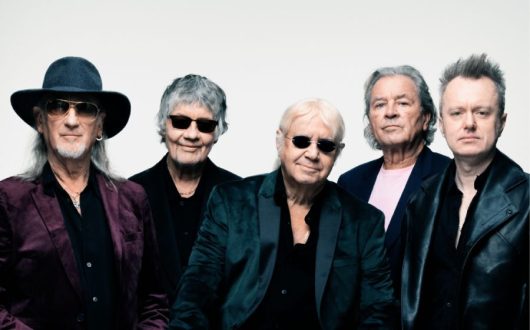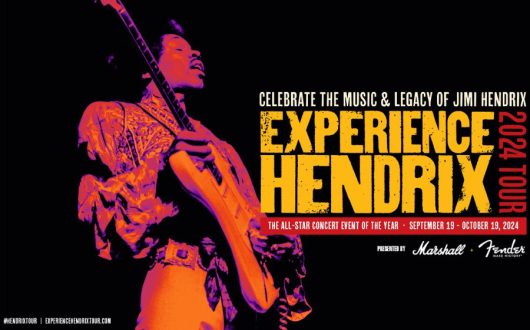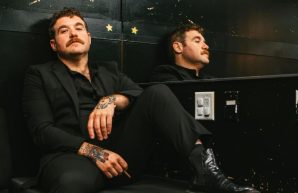Interview and Live Photos by: Robert Cavuoto
Steve Lukather of Toto recently released his autobiography; The Gospel According to Luke this past September. It’s a captivating read as Steve shares an unfiltered and raw look at his career as a session musician and guitarist for Toto. Steve gives his honest behind the scenes accounts in the making of so many classic recordings with Toto, Paul McCartney, Stevie Nicks, Elton John, Joni Mitchell, Don Henley, Roger Waters, Quincy Jones, and Michael Jackson.
Toto is one of those rare bands who’s success has given them transatlantic fame. They have sold over 35 million albums globally and touring the world since their inception. Despite member changes, illnesses, deaths, and musical trends – they have survived with their success continually growing with every passing CD and tour.
I sat down with Steve for a highly entertaining discussion about The Gospel According to Luke, the challenges Toto faced from the media, and his views on the popular trend of artists who lip-sync at live performances.
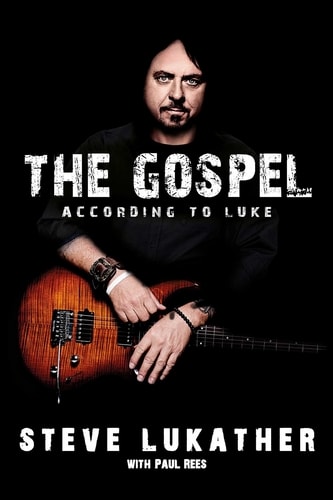
Robert Cavuoto: I enjoyed your book; it read like a who’s who’s Encyclopedia of Rock & Roll! You truly have a knack for networking.
Steve Lukather: Thanks, I have been in Rock & Roll a long time and came up with a lot of these guys. We maintained friendships for 45 years. I grew up in Los Angeles, so I was geographically placed right and also went to high school with the Porcaro brothers. Jeff Porcaro was in Steely Dan when we were in high school, so the bar was set pretty high. We knew what we had to do in terms of being professional musicians. Growing up in that area, in that time, all coming up together, we became successful. I was also working on all these studio sessions and met a lot of people. When you do something good, they tell their friends about you. That’s how it all happened in the Readers Digest version. It’s all based on word of mouth as you can’t send out cards and make people listen to your demos and then show up and be flashy; that’s never going to happen. You will never have any success doing that. A lot of it is in my personality I guess too, I’m a funny guy, and I get it. I can’t really tell you if you do “this or that,” then this will happen because every situation is different.
Robert Cavuoto: You sound like a people’s person with for gift of making your dreams and goals a reality.
Steve Lukather: [Laughing] You made me laugh, yeah I love people. I’m a nice guy and friendly person. I walk down the street like everyone else. It’s been an interesting life,and I’m just the same as you.

Robert Cavuoto: How important was it to have your parent’s support going into your career choice of being a professional musician?
Steve Lukather: You have to understand that when I announced I wanted to be a musician, I was a kid in the 60s. My father was in the movies and television business, so he knew about show business. He tapped me on the head and said, “Its a billion to one chance of making it.” I told him, “Yeah, but I’m going to be that guy.” He started laughing and said, “Go for it Dude!” He also told me to start thinking about something else as a back-up, and I never did. I never had that thing to fall back on. I don’t believe in that; I don’t believe in telling your kids, “Don’t follow your dreams make sure you just settle.” I realize everyone wants this dream but not everyone is going to be able to do it. I have the coolest job in the world, and I’m very grateful for it! But, it’s still a job with a lot of sacrifices. People don’t see the part where I’m away from my family 240 days a year, the things that I miss, the sadness of being alone, and the isolation. You go from being on stage with all these people applauding to a hotel room by yourself. Then you have your kids going, “Daddy when are you coming home?” It’s a really a rollercoaster of emotions. Parts of the first few weeks on the road are fun and glamorous, but it’s not the bigger picture of my 45-year career.
Robert Cavuoto: You have some highly entertaining and honest stories in the book. Any regrets on sharing some of them?
Steve Lukather: No, I left a lot of stuff out, to be honest with you. There were 400 pages left on the ground. I could have written ten books. I think I gave it a good broad stroke look of my life. I gave a few people a slap, but they deserve it. I was actually nice where I could have said something worse. [Laughing]. I didn’t want to be that guy. There were people who legitimately went out of their way to fuck me, and they deserved to get called out. There were also people that I couldn’t talk about due to litigation, so I left them out.
Robert Cavuoto: Did you get any grief from people not being included in the book?
Steve Lukather: My oldest daughter said, “They didn’t use anything about me.” I didn’t even realize it! The process took two years, and at some point, I had to throwup my hands as I couldn’t take it anymore because I had too much going on. I never realized how well this was going to be taken and how people would be affected by it in a positive way. The reviews have all been positive. I’m a guitarist from Los Angeles, and somehow it is resonating with people in a humorous way.
Robert Cavuoto: You talk about the some of the negativity the press has given Toto over the years, why do you think they were so harsh?

Steve Lukather: We came out at the same time as the Punk movement, and I think the press picked us out of the gene pool to hate for a couple of reasons. For one thing; the name of the band which I have always winced at. I think that made us an easy target. Another was that we were all studio musicians. It’s a very misunderstood job especially by hipster rock critics because most of them are failed musicians. Most of them didn’t know we started as a high school band! Also the fact that we didn’t have an image; if there was ever a band that needed a stylist, it was us. I dressed like a grunge guy in 1975 [laughing]. My hair was always disheveled, and I had ripped up jeans. Back then you couldn’t look like that, fast forward 20 years and that’s “the look!” We were a bunch of musicians who were not thinking about our clothes, having a pretty boy face and political posturing. That’s not what we were about. We came from an era of The Beatles and Steely Dan who were our heroes, only to find out it’s a deficit to be a good musician in certain people’s eyes. You have to ask yourself, would you want a punk doctor offering to give you brain surgery? We were hired to do a lot of different stuff and had to be ready for anything. That’s a very difficult and strange skill set to have. We would go into a situation where some chord symbols were written on a page, and we would create, re-arrange, and rewrite it. If you think that is easy and some punk guy could do it; then cool. We were never anything other than a bunch of guys who played rock music. People didn’t understand that so rather than deal with it, or give us any type of respect; they dismissed us. They haven’t let up in 43 years.
Robert Cavuoto: Jimmy Page validated your abilities as a studio musician which must have been an honor!
Steve Lukather: When Jimmy pulled me aside and told me, “People don’t understand what is to be a studio musician” and included me in the same breath as himself; I hugged him with a tear in my eye. I asked him if I can tell people that? He laughed and said and “Sure!” He was so great to me, and that was the only time I have ever hung out with him. When your childhood hero says something nice about you, those are the moments that you have to pinch yourself. It made me feel really proud. I played all types of music but never fell into one type of genre. I don’t know what to even call myself; I guess I would say I’m a Rock & Roll guitarist who studies theory.
Robert Cavuoto: I think you had the last laugh as Toto is truly a successful global band.
Steve Lukather: That’s what’s so insane. I can remember Don Henley telling me in the 80’s when we were working on his record, that the press hated Zeppelin, they hated The Eagles and if you wait around long enough to pay your dues the haters will eventually say, “They really hung in there, so he has to give them some love.” [Laughing] It happened with some publications with the expectation of Rolling Stone because we refused to talk with them. They tried to reach out to me, and I said: “Fuck You!” They didn’t like that, so they wrote a shitty piece about Toto and Journey.

Robert Cavuoto: What is it about your music that transcends to so many people around the globe in such a positive manner?
Steve Lukather: The way we approach our records on a song-by-song basis. I don’t really know what else connects all those people; maybe it’s the musicianship? If I could do it every time, I would be talking to you from my own private jet. [Laughing] If we wrote songs that connected with people 40 years ago and still connect to this day that’s great. We have been getting introduced to a younger fan base because of the band Weezer. We have 20-25-year-old kids at our shows and digging our musical catalog. We are doing 10-12 million streams a month of all of our music not just “Africa.” We are selling out shows in a day. Who would think after all the shit we took and all the hard work things would turn around for us. There are always going to be people who don’t like you, and that’s cool, you just don’t have to be vicious about it. It’s crazy to think that these hipster critics from 1975 who now 75 years old think they are still the heroes to the youth and have their pulse on rock nowadays! I have four kids at all ages, and I have no fucking clue.
Robert Cavuoto: In the book, you talk about Bobby Kimball lip-syncing at Toto shows. There seems to be a lot of talk in the press about bands lip-syncing nowadays. What are your thoughts on it then and now?
Steve Lukather: Yeah, it’s “dicie.” With Bobby, it was out of pure necessity. You can’t go there and scream a #1 song out of tune. In his defense, those songs were written in a high key when he was a younger man. It was hard for him to back then. David Paich wrote the songs a certain way and forced it out of Bobby. All the tenor singers from the era got burned out not just Bobby. It was one of those unfortunate things that he lost his voice, and we had to keep working. It caused me to drink too much because I didn’t feel good about it. It’s one thing if you are doubling your background vocals so everyone who is singing sounds fatter. That shit goes on every night you just don’t hear about it. Some people just go out there and lip-sync the whole record, and nobody cares. That to me is just not right. There are guys out there that just can’t sing anymore, and that happens way, way, way more than you can ever know! There are guys in the road crew who have to sign non-disclosures agreements and hide under the stage with ProTool rigs for some of the biggest acts; I just can’t say who. I will say it’s not uncommon anymore. Sometimes it’s a little help and sometimes its outright trickery! The real shit rises to the top. In our case, we were never in style so we couldn’t be out of style. We were just there so if you discover us, great. We were the most alternative band there ever was. Then “Africa” blew up and gave everyone gave us a second look. It’s certainly not the song that I thought would be the golden carrot in our entire career.
Robert Cavuoto: Most people might not know that you played guitar on Michael Jackson’s “Beat It” and Eddie Van Halen only played the lead. You mentioned in the book you put together a rocked out version of that song, but Quincy Jones didn’t accept it. Has that version ever been released?
Steve Lukather: No, we had 24 track machines back then, if you didn’t like something you erased it most of the time. Eddie Van Halen’s guy, Donn Landee cut the tape, and we couldn’t sync the tracks up, we had to rebuild the song. Eddie and I are good friends and still are to this day. So I thought they wanted a rocked out version so I had quadruple tracked Marshall amps all the way up and made it as heavy as you could for 1982. Quincy thought it was too much as he was going for an R&B radio crossover. He said to use one of my little Fender amps, and I did it again with the bass tracks. Michael came to the studio, and we completed the rest of the parts.
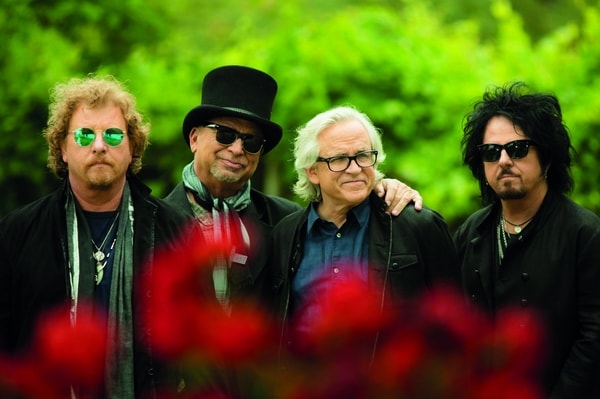
Robert Cavuoto: Now that the book is published was there anything you learned about yourself?
Steve Lukather: It was very cathartic; I worked on it for two years with my co-writer Paul Rees. On the first draft, I sounded like a proper Englishman. I was like this isn’t real, it isn’t me; it has to be raw, so we added more swearing and my fucked up sense of humor. We went in line-by-line to make it funnier and real. You hear that all these Rock & Roll guys’ do a book, what they really did was an interview and slapped their name on it. I wanted to be more involved and went through every paragraph and word. I just read it for the audiobook, and I’ll find out if it makes the cut to the Grammys. It already made the first cut for spoken word. Even with the nomination I would laugh and howl my ass off. It would be cool.
There were a lot of things I learned about myself; I really wish I didn’t do some of the things that I did and could fix some of the other things. I wish I didn’t hurt certain people’s feelings. In some cases, I just look back and say, “Did I do all that?” It really crossed out the myth of how drugged up and fucked up we were supposed to be. How could I have accomplished everything if I was messed up? That is the one thing that I resent about the media by putting a label of drugs on our band. Yeah, we got high in the 70’s and 80’s like everyone else. I wouldn’t have been hired again and again if I was that messed up. Bobby got busted because he made a mistake in 1982 trying to get laid and selling something and Jeff died only to find one micro-something of coke from seven years prior, and the headlines say it was an overdose. It’s really irresponsible, and some people will not let it go and keep bringing it up in the press. The guy is dead they should show more respect to the family. Now the word cocaine is connected to my band forever.


